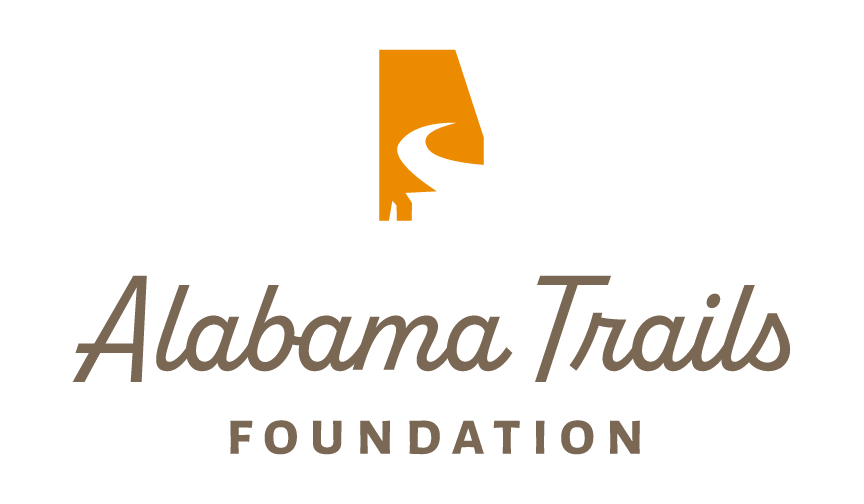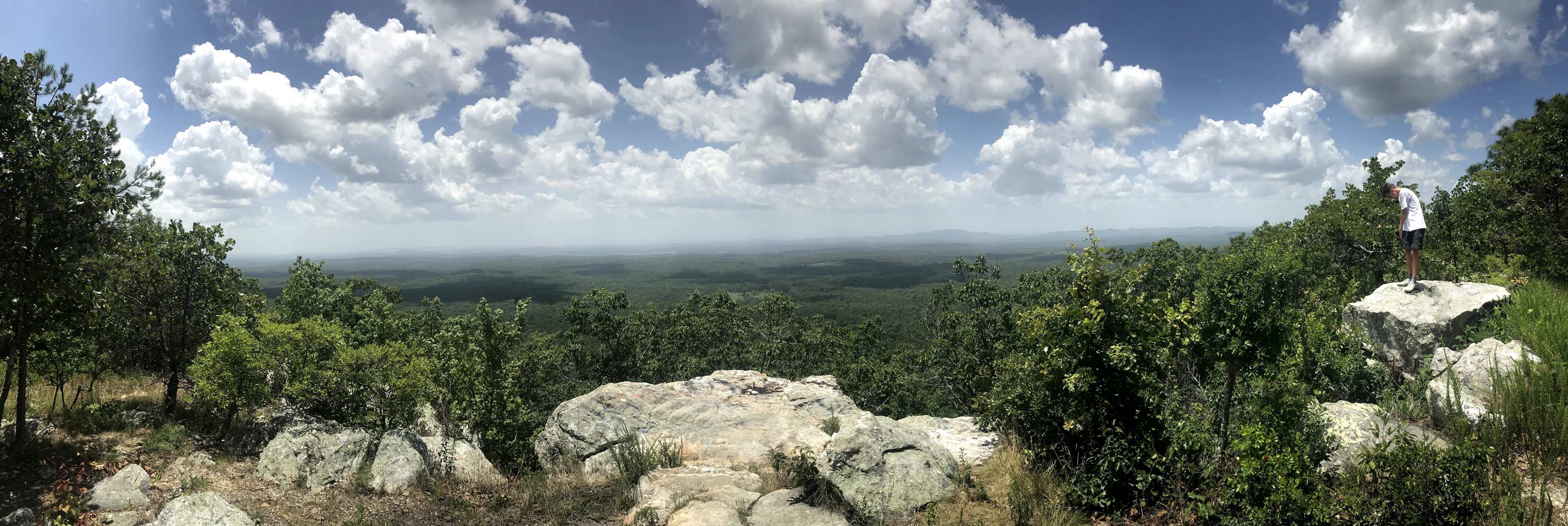Our Values: The Alabama Trails Foundation supports trails that can bring Alabama’s many cultures and peoples together. We welcome all users of trails: regardless of socio-economic status, religion, sexual orientation, skin color, size, gender, disability, or age. We strive to lessen the barriers of entry for accessing Alabama’s trails and to foster a greater appreciation of our natural landscape. As we work towards developing a more robust trails system, we seek to create a sense of belonging that includes long-time trail users and communities traditionally not participating in Alabama’s natural environment. We support using trails to help tell stories that are woven of the many cultures from Alabama’s past who have made this land a home, while bringing us together on a common path moving forward.
Organizational Capacity: 2018 marked the first fully active year of the Foundation. During that time an interim board was established and became engaged in establishing a business framework for the Foundation. This interim board met four times from November 2017 to April 2018 and by September had recruited and met with the first permanent board due to be formally instated in the fall of 2018. Four members of the interim board are staying with the permanent board including the Board Chair and Board Treasurer. The Board Treasurer is providing the services of her company’s in-house accountants and executive assistant to manage all transactions and store the official documents of the Foundation. (Reference Appendix A)
A Steering Committee, of key individuals with knowledge of the purpose and intent of the Foundation, was convened. The primary charge of this committee was to develop a basic business framework to support operations during the formative years, or until the permanent board was seated and could address in greater detail. From the work of the Steering Committee a process for procurement and billing was established as well as program and project level budget tracking. In addition, registration in Alabama and Federal acquisition systems (STARS and SAMs) have been established and updated to reflect current addresses and names of those with authority to act on behalf of the Foundation.
From the Steering Committee came the project management definitions and guidelines. The two types of projects managed by the Foundation are Primary and Fiduciary. The project guidelines set preliminary sideboards for when projects are accepted by the Foundation and what is considered for how and when to hand the project back to the local advocates.
Primary Projects: Primary trail projects are those that will benefit from the Foundation’s leadership and support of planning, coordination, fiscal and/or advocacy resources to become significant “game changers” for Alabama’s trails environment and associated recreation economy. These are trails that enable the user to explore landscapes that are truly unique to Alabama and celebrate the cultural and environmental qualities of our great state. The first Primary Project accepted by the Foundation is the Pinhoti Hiking Trail. Until recent years, the Pinhoti has been predominately a Forest Service trail spanning the Talladega National Forest. With the advent of the Forever Wild program and leadership from conservation organizations, the Pinhoti now includes six land ownerships and is over 160 miles in length. There also two volunteer organizations that perform most of the new trail development and maintenance of the existing trail.
There is an underlying passion by all involved to have the Pinhoti represent this very important part of Alabama as well as tie into the Appalachian Trail, recognizing Alabama’s Appalachia heritage along with that of her sister states of Georgia and Tennessee. Towns along the trail are asking for assistance on how to better derive economic benefits from the trail. All indications are that the Pinhoti is a perfect scenario to launch the Foundation’s Primary Project program. It has local commitment, but lacks the planning and organization needed to enhance the Pinhoti to a socially, ecologically, and economically sustainable trail system. Achieving this will require developing a master plan to address operations and governance across multiple jurisdictional boundaries, obtaining and incorporating contemporary designs, and pursuing and obtaining traditional and nontraditional funds.
The Foundation provides dedicated leadership in developing, mentoring, and coaching a local collaborative that will allow the Pinhoti, and other Primary Projects that may come, to grow and evolve into a modern business model that moves volunteerism and advocacy to supportable programing. The Alabama Trails Foundation brings to the Pinhoti the resources to seek out the highest rigor in design, planning, and organization. The Foundation is positioning itself as the organization that Alabama trail groups can rely on to help them through those “pinch points” in organizational growth and guide them into a deep dive towards organizational stability and justifiable trail systems that are adaptive and responsive to engaging new partners and funding sources; and pass the litmus test of sustainability.

